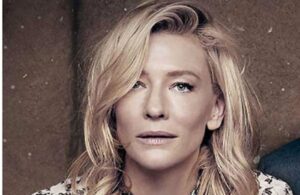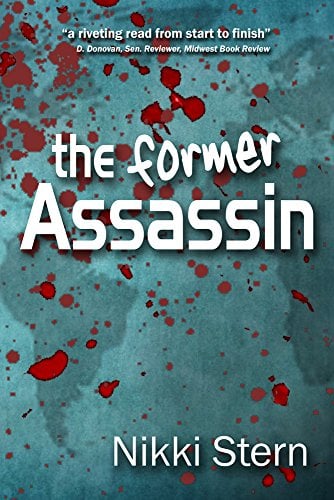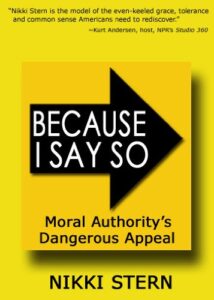The Former Assassin received a 4+ star review, making it an IndieReader Approved title.
Following find an interview with author Nikki Stern.
What is the name of the book and when was it published?
The Former Assassin (January, 2018)
What’s the book’s first line?
“Today is not a good day to die.”
What’s the book about? Give us the “pitch”.
Suzanne Foster—wife, mother, former assassin—wants to retire. Her boss wants her dead. Furious at her betrayal, he’ll risk everything, including his fortune, his family, and his future, to end her. And Suzanne will be forced to do what she does best—kill. Assassins, it seems, never get to retire.
What inspired you to write the book? A particular person? An event?
The book opens with a middle-aged woman staring out at the sea contemplating her life. I was in that position one morning. I came home and wrote the scene. For some reason, I knew the woman had a gun to her head. After that, and although I had no previous experience as an assassin (that I can tell you about), I decided to create a story around this solitary figure in so much danger.
What’s the main reason someone should really read this book?
Character, plot, scenery. Suzanne is quite introspective, conflicted about her past as well as her future. She craves a different kind of life, she adores her husband and son. And her ex-boss, Victor Kemp, is not a cartoon evil guy. He’s thoroughly criminal and self-aggrandizing, but he also has a loving relationship with his mistress and his eldest son, not to mention a sturdy friendship with his long-time second-in-command. The plot encompasses a cat and mouse situation in which the roles of hunter and hunted keep switching. There are plenty of surprises. And who wouldn’t want to visit San Francisco, New York, coastal Wales, London, what used to be called Bombay, or Nice, especially across several decades?
What’s the most distinctive thing about the main character? Who-real or fictional-would you say the character reminds you of?
Suzanne Brooks Foster is resilient. She survived self-involved and monumentally neglectful parents and a stint on the street. She almost turned her life around, but for one fatal mistake that put her in Victor Kemp’s cross-hairs. She suffered under his command for more than two decades but always with an endgame. She is aware of her limitations. And she is a hell of a long-distance markswoman. Who does she remind me of? Every woman I’ve ever admired and no one I really know.

Trust me when I tell you I’ve been thinking of this for several years! At this point, I am leaning towards Cate Blanchett, who has the right amount of closely guarded passion for the part of Suzanne. Damian Lewis (Homeland) would make a splendid Brian, her husband. I am still trying to decide who would play Victor Kemp. Would Alfred Molina be willing to wear contacts? Or Stacey Keach?
When did you first decide to become an author?
I’ve been writing for years but I dedicated myself to the craft about twelve years ago when I decided to write a non-fiction book about my experiences as a 9/11 widow. After two books and two anthologies on very serious topics, I decided to write fiction. I took a few years, more than a dozen short stories, one class and many drafts to practice, trust me.
Is this the first book you’ve written?
Book number three. My first two non-fiction books were Because I Say SO: Moral Authority’s Dangerous Appeal and Hope in Small Doses, which is still selling. This is my first novel, though.
What do you do for work when you’re not writing?
When I began I was working as the executive director of a non-profit. Now I get to put my efforts into writing
When I’m writing, four or five hours a day. I set a timer so I remember to stand up! When I’m marketing, sometimes the writing takes a back seat, though.
What’s the best and the hardest part of being an indie?
The best part involves working on a project you believe in, even if it’s, say, a hybrid genre or a little out of the box. The worst part, frankly, is the problem with respect. Traditional publishers assume that because anyone can publish, all independently published works are of lesser quality than traditionally published ones. The larger indie alliances are addressing this issue by instituting their own standards, not to mention offering reviews and prizes and other sorts of recognition. They’re also forging partnerships with libraries and even a few traditional publishers. That kind of effort is going to help in the long run. At the end of the day, the reader wants a book he or she can enjoy.
What’s a great piece of advice that you can share with fellow indie authors?
Be thorough. Get the best editor or maybe two—one for structure and one to copy edit and proof. Hire a book cover designer and let that person typeset your interior. Make sure you’re putting your best product out there. I am guilty of impatience; I can tell you that in the beginning, I was not as careful as I should have been.
Would you go traditional if a publisher came calling? If so, why?
Ah, the moment of truth. I’m going with: it depends. If an established traditional publisher comes calling because I’ve had some recognition or success as an indie, then yes, I might. Because the publisher is going to believe he/she has a product and an author worth promoting. The smaller presses aren’t always optimally positioned to do aggressive promotion, particularly for genre writers—mystery, romance, sci-fi. In women’s literature, certain small presses convey a cache and mean a great deal. For certain non-fiction, an academic press carries a certain amount of prestige. Ideally, I’d have a foot in each world.
Is there something in particular that motivates you (fame? fortune? more sex?)
If I thought the writing would get me more sex, I’d write more hours a day! Seriously, though, I want to be recognized as providing a damned fine entertainment experience. I’d love to sell a lot of books; I’d also love to get (more) good reviews. Mostly, though, I want to be a go-to author for whichever people find my work satisfying.
Which writer, living or dead, do you most admire?
Dead: Mark Twain, Kurt Vonnegut
Living: Kurt Andersen, Lee Child.
Which book do you wish you could have written?
Any or all of the Jack Reacher books by Lee Child. Talk about a winning formula!


